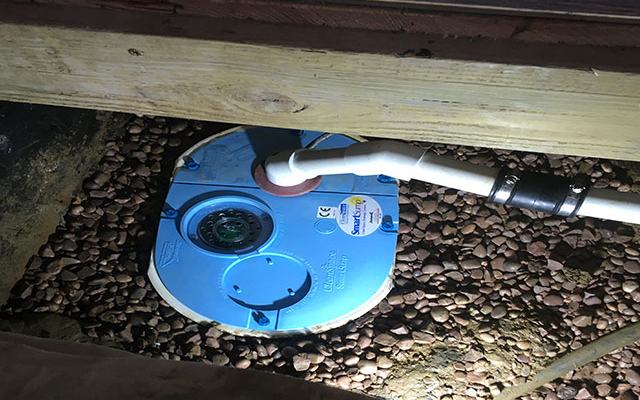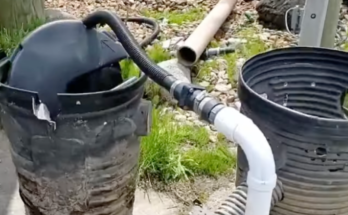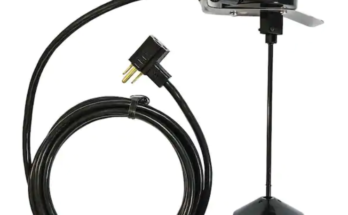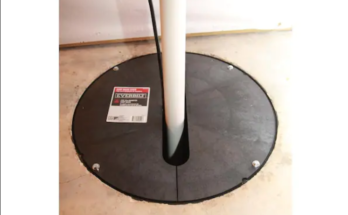Sump pumps are usually found in the basement of homes to keep them dry during heavy rains and avoid floods. However, there is a lot of misunderstanding regarding how these devices function and when they ought to be in use. Here is a look at how long should a sump pump run. It can run constantly for up to 24 hours, depending on the sump pump’s quality, although there are concerns.
Using a sump pump is the greatest approach to prevent flooding in the basement. It is a tool that aids in removing surplus water and flushing it out. The pump is normally inactive on a typical day. The float switch will automatically turn on when the water level reaches a predetermined level while it is pouring rain. So, you might be wondering how long should a sump pump run. The best answer is to activate a sump pump whenever there is a possibility of flooding or when a particular water level is approaching. For instance, a sump pump will operate more frequently to remove water in a rainy location than it would in a dry one when it is mostly on standby. In this blog, we will shed light on how long should a sump pump run, so keep reading!
How Often Should Sump Pumps Work?
Your sump pump shouldn’t operate at all on an average day with dry weather. However, be prepared to act in case the house starts to receive an excessive amount of water. Sump pumps are activated by a built-in mechanism. It remains immersed in the pit and is referred to as a float switch. Water will begin to accumulate in the pit as the home begins to get oversaturated, which will cause the float switch to be activated and for the pump to kick on. Only when it is required due to a particular quantity of water in the basement should a sump pump be activated. People who live in places with regular rain will notice their sump pump running rather frequently. Homeowners must know about how long should a sump pump run. It may occasionally turn on many times each day. However, people who reside in places with lower rainfall will require their sump pump much less frequently.
How Long Should A Sump Pump Run?
Based on the amount of rain and the condition of the pump, Sump pumps can run constantly for six to twenty-four hours. Your pump should only operate when necessary, but with constant demand, it ought to be able to empty its pit in a matter of minutes. The sump pump runs for 5 seconds if it’s less needed. If your pump is continuously running, you may need to look into the matter to determine why it is running so long before the pump wears out. This might be a sizable sum for a variety of reasons. The water table may be higher than your basement floor if you live in an area with a lot of rain, which would require the pump to run twice or three times every day. How long should a sump pump run? Your pump will operate more frequently if you reside in a cold climate when the snow is melting. It can also be running often if it has been raining a lot.
Effects of Motor Design
How long should a sump pump run is determined by the motor’s design. Sump pump motors come in two varieties: intermittent and continuous. Intermittent-duty motors operate only when necessary and occasionally cease, as their names imply. Continuous-duty motors have a long operating life. In order to keep water out of low-lying regions of your property and extend the life of the sump pump motor, intermittent-duty motors run continuously for a while and then take a break. When there is a strong demand for water removal from your property, a continuous-duty motor can run continuously for up to 24 hours, but it has a shorter lifespan than an intermittent-style sump pump motor.
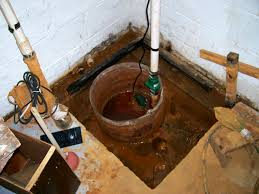
Sump Pump Running
Your device shouldn’t be running continuously unless it is positioned in a location that is well below the water table. If you are thinking about how long should a sump pump run, Your pump may operate continuously for up to 22 hours without experiencing wear and tear when there is flooding or excess water posing a threat to your home. Standard domestic versions are made to operate for six hours before beginning to exhibit symptoms of wear. On the subject of whether a septic system continuous sump pump, many homeowners have doubts. We’ll look at various scenarios you can encounter and how to avoid harm to your sump pump and home.
Potential Problems with Sump Pump
Let’s shed some light on potential problems which cause continuous sump pump:
- Underground Water Main Broken: Major issues can result from a ruptured underground water main. Turn off the water main and see whether the issue goes away to see if this could be the reason why your sump pump is running too frequently.
- Poor Ground Grade: Flooding is more likely to occur if the gradient around the foundation of your property is negative, which could direct precipitation towards the house rather than away from it. In this instance, raising the grade is required to reroute the water flow.
- Level of Groundwater and Drain Tile: The sump pump may need to operate too frequently in some situations due to the groundwater level and drain tile around the home forcing water to collect in the basement. This problem could be resolved by utilizing waterproof paint or professionally sealing the basement.
- Mechanical Issues: Here are a few mechanical issues that a sump pump could experience and which could make it operate excessively even when there is no water inside the pump.
- Lack of Power: A sump pump that is too small can be the issue in a big house or one where the demand on the pump is great. A more potent pump that can meet the demands placed on it can be purchased to alleviate this situation.
- Float switch malfunction: The float switch may occasionally operate excessively frequently or get trapped in the “on” position even after the water level has dropped due to a clog, obstruction, or breakage. The float switch needs to be fixed if you want to prevent energy waste.
- A Blocked or Freeze-Frosted Discharge Line: A discharge line permits water to leave the house, but if it is blocked or frozen, it prevents water from leaving the building. The sump pump will keep running because the water isn’t draining, so it’s critical to identify the obstruction or frozen place and fix it so the pump can resume regular operation.
- Damaged check valve: A check valve stops water from a sump pump from flowing backward through the pipe that it is supposed to leave through. Water that was pumped out will come back in when the check valve is damaged, causing it to keep running. If this valve breaks, it can be replaced.
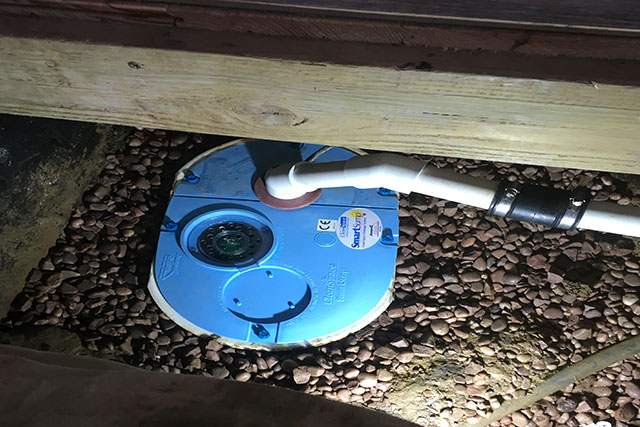
Maintaining Sump Pump
In order to know how long should a sump pump run you must also pay attention towards sump pump maintenance. To prevent debris from getting into the pump, you can keep an eye on it and maintain the area around it clean at all times. If you are confident using a sump pump, make regular checks for obstructions and keep the float switch properly adjusted. To restore it to normal operation, replace the damaged components as necessary.
Conclusion
Depending on your circumstances, owning a sump pump might be absolutely necessary. You should be aware of what is required of your sump pump. How long should a sump pump run, whether it needs to operate more frequently under specific weather conditions, and whether it should run intermittently? Hope this article will work for you best in identifying how long should a sump pump run. Thanks for reading!
Read More Articles
| How To Finish Basement With French Drain |
| How to clean prefinished hardwood floors |
| Why POLISHED CONCRETE FLOORS are best for Home and Office |
